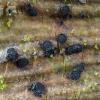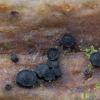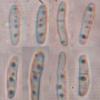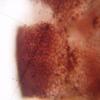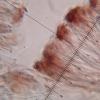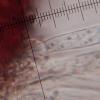
23-02-2026 11:22
Thomas Læssøehttps://svampe.databasen.org/observations/10584971

29-11-2024 21:47
Yanick BOULANGERBonjourJ'avais un deuxième échantillon moins mat

07-02-2023 22:28
Ethan CrensonHello friends, On Sunday, in the southern part of

19-02-2026 17:49
Salvador Emilio JoseHola buenas tardes!! Necesito ayuda para la ident

19-02-2026 13:50
Margot en Geert VullingsWe found this collection on deciduous wood on 7-2-

16-02-2026 21:25
 Andreas Millinger
Andreas Millinger
Good evening,failed to find an idea for this fungu

08-12-2025 17:37
 Lothar Krieglsteiner
Lothar Krieglsteiner
20.6.25, on branch of Abies infected and thickened
Durella related?
Adam Polhorský,
22-04-2016 18:11
size 0,3-0,8mm , gregarious on a quercus branch.
Spores: (6)7-9(9,5) x 1,5-2µm, with one spetum, oil content variable- usually 2 big gutules at poles with some scattered smaller ones.
Asci: inamyloid, 8-spored, no croziers observed
Paraphyses: straight, hyaline, no content observed, with brown crust on top of hymenium
Searched in Patellariales, Durella species- think i´m in a wrong genus, can someone help?
Thanks,
Adam
Hans-Otto Baral,
22-04-2016 18:18

Re : Durella related?
Hi Adam
this requires some further tests. I imagine it is what i call Durella uncinata, but it is unrelated to Durella, possibly a Skyttea.
I am quite sure if you add KOH a purple dye will extrude.
But the asci should be with croziers and the paraphyses hooked. Both I cannot see on your pics.
Zotto
this requires some further tests. I imagine it is what i call Durella uncinata, but it is unrelated to Durella, possibly a Skyttea.
I am quite sure if you add KOH a purple dye will extrude.
But the asci should be with croziers and the paraphyses hooked. Both I cannot see on your pics.
Zotto
Adam Polhorský,
22-04-2016 20:34
Re : Durella related?
You were right Zotto! I should´ve been more thorough. Croziers are indeed present, and paraphyses are distinctively hooked. Sorry, i dont have good enough pictures to show .
But the hymenium stained dark red-purplish and no exudate seen - 3 and 10%KOH was used. Do u have any photos- so i know what reaction im looking for? I didnt find the species in your drive under Durella group.
Thank you very much, as always.
But the hymenium stained dark red-purplish and no exudate seen - 3 and 10%KOH was used. Do u have any photos- so i know what reaction im looking for? I didnt find the species in your drive under Durella group.
Thank you very much, as always.
Hans-Otto Baral,
22-04-2016 20:59

Re : Durella related?
Indeed I moved it to Cordieritidaceae where Skyttea belongs.
You find it here:
https://drive.google.com/folderview?id=0B5SeyOEkxxZhMFJLcDd5YlB1RFE&usp=drive_web&tid=0B5SeyOEkxxZhYVZub0N1aGY5YTg
In this folder you can see a ionomiditic reaction, though a bit indistinct.
In the subfolder uncinata you see most below a pic with nice reaction.
This dissolution of pigent is transient, i.e. when you squash in KOH you see nothing, you must pit it in water and then add KOH to the edge.
You find it here:
https://drive.google.com/folderview?id=0B5SeyOEkxxZhMFJLcDd5YlB1RFE&usp=drive_web&tid=0B5SeyOEkxxZhYVZub0N1aGY5YTg
In this folder you can see a ionomiditic reaction, though a bit indistinct.
In the subfolder uncinata you see most below a pic with nice reaction.
This dissolution of pigent is transient, i.e. when you squash in KOH you see nothing, you must pit it in water and then add KOH to the edge.

